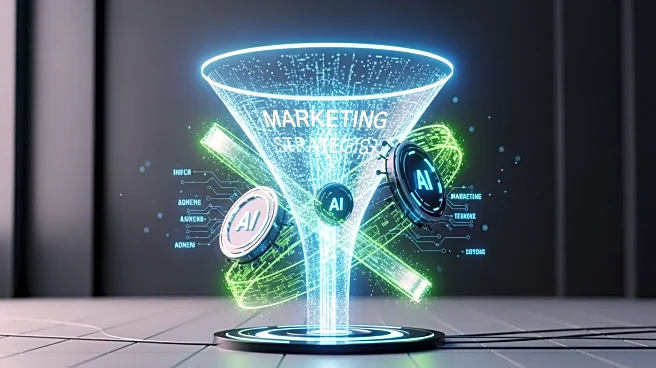What's Happening?
Dan Chapman, global chief strategy officer for UM Worldwide, discusses the challenges and opportunities presented by AI and traditional marketing funnels in brand growth. Chapman argues that while AI has
the potential to revolutionize brand building, it risks driving brands towards generic marketing strategies if not used to enhance brand differentiation. He highlights the limitations of the century-old marketing funnel, which remains a narrow and linear model for brand equity activation. Chapman suggests that AI should be strategically deployed to capture the unique nuances of a brand's DNA, enabling more individualized and effective marketing campaigns.
Why It's Important?
The discussion underscores the need for brands to leverage AI in a way that enhances their unique identity rather than conforming to industry norms. As AI becomes more prevalent in marketing, companies must focus on differentiating their strategies to avoid becoming indistinguishable from competitors. This approach can lead to more personalized and impactful marketing efforts, driving brand loyalty and long-term growth. The insights also highlight the importance of moving beyond traditional marketing models to embrace more dynamic and interconnected strategies that reflect the complexities of modern consumer engagement.
What's Next?
Brands may begin to adopt new frameworks that integrate AI with a focus on brand differentiation, moving away from reliance on traditional funnels. This could involve training AI systems to prioritize individuality and long-term outcomes, fostering diversity in marketing strategies. Companies might also invest in research and development to better understand their unique brand patterns and leverage AI to orchestrate campaigns tailored to specific segments and markets. As AI continues to evolve, marketers will need to balance technological capabilities with creative innovation to maintain brand distinctiveness.
Beyond the Headlines
The shift towards AI-driven marketing strategies raises questions about the future of brand identity and consumer engagement. As brands navigate the complexities of AI integration, they must consider the ethical implications of algorithmic decision-making and its impact on creativity. Additionally, the potential for AI to homogenize marketing efforts could lead to a loss of cultural and social relevance, challenging brands to find new ways to connect with diverse audiences.








